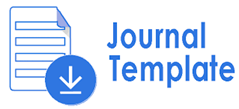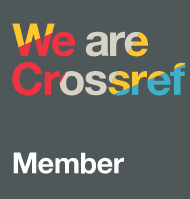Islamic school with digital culture in era society 5.0
Abstract
Keywords
Full Text:
PDFReferences
Agung, A. S. S. N., Surtikanti, M. W., & Maiza, M. (2020). Pelatihan Komputer Dasar Bagi Guru Sekolah Luar Biasa Negeri Ngabang. BERNAS: Jurnal Pengabdian Kepada Masyarakat, 1(4), 287–292. https://doi.org/10.31949/jb.v1i4.411
Akbar, A., & Noviani, D. N. (2019). Tantangan dan Solusi Dalam Perkembangan Teknologi Pendidikan di Indonesia. In Prosiding Seminar Nasional Program Pascasarjana Universitas PGRI Palembang, 18–25.
Aziz, A. (2018). Hubungan Antara Kompetensi Guru dan Kepercayaan Diri dengan Kemandirian Siswa SMPN 2 Pangkalan Susu. Jurnal Psychomutiara, 1(1), 15–29.
Deliyati, A., Gustina, R., Winata, A., Rejeki, S., Saddam, & Bidaya, Z. (2023). Peranan Pendidikan Karakter dalam Menghadapi Tatangan di Era Digitalisasi. In Seminar Nasional Paedagoria , 478–486.
Dinata, K. B. (2021). Analisis Kemampuan Literasi Digital Mahasiswa. Edukasi: Jurnal Pendidikan, 19(1), 105–119. https://doi.org/10.31571/edukasi.v19i1
Eraku, S. S., Baruadi, M. K., Anantadjaya, S. P., Fadjarajani, S., Supriatna, U., & Arifin, A. (2021). Digital Literacy and Educators of Islamic Education. Edukasi Islami: Jurnal Pendidikan Islam, 10(01), 569–576. https://doi.org/10.30868/ei.v10i01.1533
Fahyuni, E. F., Wasis, Bandono, A., & Arifin, M. (2020). Integrating islamic values and science for millennial students’ learning on using seamless mobile media. Jurnal Pendidikan IPA Indonesia, 9(2), 231–240. https://doi.org/10.15294/jpii.v9i2.23209
González‐pérez, L. I., & Ramírez‐montoya, M. S. (2022). Components of Education 4.0 in 21st Century Skills Frameworks: Systematic Review. In Sustainability (Switzerland) (Vol. 14, Issue 3). MDPI. https://doi.org/10.3390/su14031493
Hendri, S., Wahyuddin, W., Angga, S., Permana, A., Sembiring, S., Jurnaidi, A., Jatmiko, W., Nugroho, W., Rahajeng, E., Kurnaedi, D., Taufik, R., Bau, R. L., Adhicandra, I., Tubagus, Y., & Rivanthio, R. (2023). Teknologi di Era Modern (Diana Purnama Sari, Ed.; 1st ed.). Global Eksekutif Teknologi. www.globaleksekutifteknologi.co.id
Husni, H., & Atoillah, A. N. (2022). Islamic Education, Insan Kamil, and the Challenges of the Era of Society 5.0: A Literature Review. Jurnal Penelitian Pendidikan Islam, 10(1), 67–88. https://doi.org/10.36667/jppi.v10i1.1005
Jamilah, S. (2021). Moderate Islamic Education to Enhance Nationalism among Indonesian Islamic Student Organizations in the Era of Society 5.0. Journal of Social Studies Education Research, 12(3), 79–100. www.jsser.org
Kalalo, D. K. R., Nikolin Tambingon, H., Nicodemus, V., & Rotty, J. (2022). Tingkat Penggunaan Teknologi Informasi dan Dampaknya pada Kreativitas Pembelajaran Guru-guru Sekolah Luar Biasa di Provinsi Sulawesi Utara Indonesia. Journal on Teacher Education, 4(2), 41–47. https://doi.org/10.31004/jote.v4i2.7520
Kejora, M. T. B. , Sittika, A. J. , & Syahid, A. (2021). Strengthening Humanistic Based Character Education Through Local Values and Islamic Education Values in Basic Education Units in Purwakarta Regency. İlköğretim Online, 20(2), . 22-32. https://doi.org/10.17051/ilkonline.2021.02.06
Kencana, W. H. , & Meisyanti, M. (2019). Kreativitas Digital Dalam Political Marketing. In Conference On Communication and News Media Studies, 115–115. https://id.techinasia.com/4karakterist
Kholili, Y. (2021). Challenges for Pesantren in the Revolution Era of Society 5.0. AMCA Journal of Religion and Society, 1(1), 8–12. https://doi.org/10.51773/ajrs.v1i1.33
Mahmudah, M. , Siregar, M. , & Putra, W. H. (2023). Modernization of Islam and Language Education in the Society 5.0 Era in the Perspective of Harun Nasution. Scaffolding: Jurnal Pendidikan Islam Dan Multikulturalisme, 5(3), 30–43. https://doi.org/10.37680/scaffolding.v5i3.3455
Merliana, N. P. E. , & Tantri, N. N. (2022). Improving the Quality of Hindu Education in the Era of Society 5.0 through Digital Culture 5.0. International Proceeding On Religion, Culture, Law, Education, And Hindu Studies, 203–216. https://prosiding.iahntp.ac.id
Munifah, M., & Purwaningrum, S. (2022). Leadership strategy: Developing school culture through digital Turats learning. Cypriot Journal of Educational Sciences, 17(1), 68–80. https://doi.org/10.18844/cjes.v17i1.6682
Nadifa, M. (2018). Penerapan Pendekatan Polya Untuk Meningkatkan Kemampuan Dalam Menyelesaikan Soal Cerita Bangun Ruang Pada Siswa Kelas 5 SD. PTK A4 PGSD FKIP Universitas Muhammadiyah Sidoarjo., 1–8.
Nurdin, H. (2020). Problems and Crisis of Islamic Education Today and in The Future. International Journal of Asian Education, 1(1), 21–28. https://doi.org/10.46966/ijae.v1i1.17
Octafiona, E., Yusnita, E., & El-Khaeri Kesuma, M. (2022). The Role of Public Speaking in Islamic Religious Education Learning in the Digital Age. Al-Tadzkiyyah: Jurnal Pendidikan Islam, 13(2), 203–213.
Putra, P. , Mizani, H. , Basir, A. , Muflihin, A. , & Aslan, A. (2020). The Relevancy on Education Release Revolution 4.0 in Islamic Basic Education Perspective in Indonesia (An Analysis Study of Paulo Freire’s Thought). Test Engineering & Management, 83, 10256–10263.
Rusmana, D. (2020). Pengaruh Keterampilan Digital Abad 21 Pada Pendidikan Kewirausahaan Untuk Meningkatkan Kompetensi Kewirausahaan Peserta Didik SMK. Jurnal Ekonomi Pendidikan Dan Kewirausahaan, 8(1), 17–32. https://doi.org/10.26740/jepk.v8n1.p17-32
Samsudi, W. , & Hosaini, H. (2020). Kebijakan Sekolah dalam Mengaplikasikan Pembelajaran Berbasis Digital di Era Industri 4.0. Jurnal Pemikiran Keislaman, 4(2), 120–125.
Setiani, N. N. , & Barokah, N. (2021). Urgensi literasi digital dalam menyongsong siswa sekolah dasar menuju generasi emas tahun 2045. In SEMAI: Seminar Nasional PGMI, 411–427.
Terttiaavini, T., & Saputra, T. S. (2022). Literasi Digital Untuk Meningkatkan Etika Berdigital Bagi Pelajar di Kota Palembang. JMM (Jurnal Masyarakat Mandiri), 6(3), 2155–2165. https://doi.org/10.31764/jmm.v6i3.8203
Uyun, M. (2023). Islamic Education System in Welcoming the Era of Society 5.0. Istawa : Jurnal Pendidikan Islam, 7(2), 221–233. https://doi.org/10.24269/ijpi.v7i2.6071
Uzelac, A. (2008). How to understand digital culture: Digital culture - a resource for a knowledge society? In Digital Culture: The Changing Dynamics (Vol. 12, pp. 7–24). Institute for International Relations. http://www.culturelink.hr
DOI: https://doi.org/10.33373/chypend.v10i1.5857
Refbacks
- There are currently no refbacks.

This work is licensed under a Creative Commons Attribution-NonCommercial-ShareAlike 4.0 International License.
Copyright (c) 2018 Universitas Riau Kepulauan

Ciptaan disebarluaskan di bawah Lisensi Creative Commons Atribusi 4.0 Internasional.















